Corporate pressure threatens major Australian multinational tax reform
ALP must not let delay turn into backsliding - Statement
Mathias Cormann, former liberal finance minister and current head of the OECD, which has led the charge against corporate tax transparency.
In April CICTAR welcomed draft legislation by the Australian government to implement mandatory public country-by-country reporting (pCbCR) for all major corporations operating in Australia, with an effective date of 1 July 2023. This announcement represented the fulfilment of a pre-election commitment made by the Labor Party and reinforced in the May budget.
CICTAR and others, in Australia and globally, hailed this announcement as a ‘ground-breaking move in the fight to end multinational tax dodging’…marking ‘the beginning of the end for the corporate secrecy which obscures massive tax dodging by multinationals’. This would be the beginning of broader moves to ensure multinationals fulfil the obligation to pay taxes to help fund aged care, public health, education, and a transition to a sustainable future.
When other legislation related to multinational tax was introduced in the Parliament today, it was stated only that the government would “continue to engage with stakeholders on our commitment to introduce a public country-by-country reporting regime.” It is deeply disappointing that the government appears to be succumbing to lobbying from corporate interests and the global club of rich countries, the Organization for Economic Cooperation and Development (OECD), by delaying this landmark legislation to increase transparency on multinational tax payments globally.
The OECD’s opposition to corporate tax transparency is well known, as is the organisation’s desire to limit disclosure to secret reports only available to tax authorities in member countries. The current secretary-general of the OECD is former Liberal Party Finance Minister Mathias Cormann, whose poor record on climate policy and use of taxpayer-funded jets to campaign for the role made him a controversial choice in 2021. The ALP should stand by its commitments to voters, instead of kowtowing to an organisation led by a former Liberal Party finance minister.
The legislation has been opposed by large multinationals like Meta, the owner of Facebook, who, not surprisingly, urged the government to keep tax reporting confidential. As with other corporations, Meta argues its tax practices could be ‘misunderstood’. Big corporate interests, both foreign and domestic, have been publicly fear-mongering and quietly lobbying behind closed doors.
“It is no surprise that multinationals are pushing hard to keep everyone in the dark. No one is buying the notion that corporations are responsible and caring when failing on the most basic obligation to fund public services where profits are extracted”, said Jason Ward, CICTAR’s principal analyst. “The Albanese Labor government should not bend to corporate bullying and must enact this landmark transparency legislation as soon as possible, without watering it down.”
#
Contact: Jason Ward, principal analyst, CICTAR, at +61 488 190 457 or [email protected]
Background notes:
Similar legislation on public country-by-country reporting in the European Union was hobbled by sustained pressure from the OECD and big business in 2021. Campaigners strongly criticised the watered-down measure that was finally passed because it does not force disclosure of financial data for every country worldwide.
This weak outcome came after years of delay and indecision from the European institutions. Delay to the legislation in Australia may serve no to slowly kill these important transparency measures as in Europe. The Federal Government began consulting on pCbCR formally in August 2022 and received a broad range of responses. Arguments from big business that this proposal has been rushed through with too little time are not genuine.
CICTAR and allies have been campaigning for pCbCR for many years. CICTAR has published numerous reports detailing how corporations, many of which receive enormous amounts of public money, abuse tax havens and loopholes to minimise contributions where real economic activity occurs. Earlier this month CICTAR published a report on the global asset manager, Brookfield, which included a case study on the murky arrangements around Healthscope, the second largest private hospital operator in Australia. With ownership via the Cayman Islands and evidence of aggressive tax avoidance, it is not hard to see why corporations such as Brookfield would lobby hard to keep the public in the dark.
Brookfield is currently seeking government approval for its $19 billion takeover of Origin Energy, the latest addition to is growing stable of Australian assets. The pCbCR legislation would require Brookfield and others to report tax payments and profits in Australia and in every country in which it operates. This transparency measure would help recover billions in much needed tax, that could pay for public services, infrastructure and climate action in Australia and around the world.
A recent resolution at Brookfield saw 33% of independent shareholders back calls to require the global asset manager to implement public country-by-country reporting, against the wishes of management. The Federal Government has itself recognised the importance of enacting public CbCR for many investors.

